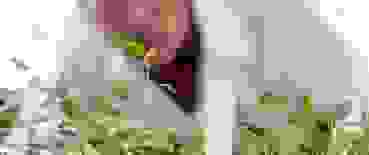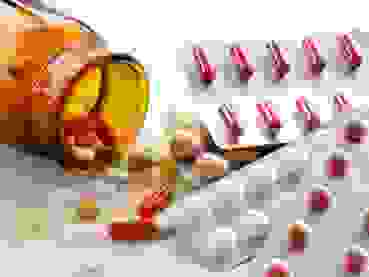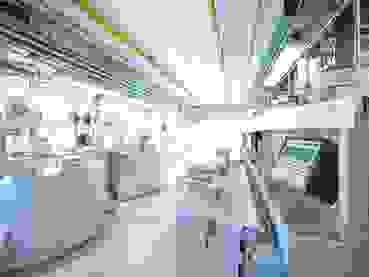
Zeller’s Story - The Value of Seed to Patient
Zeller has a unique understanding of, and philosophy for, the production of high-quality phyto-pharmaceuticals: consistent quality and efficacy can only be achieved by starting from the very beginning with the seed of a carefully selected plant.
January 31, 2019
Zeller has a unique understanding of, and philosophy for, the production of high-quality phyto-pharmaceuticals: consistent quality and efficacy can only be achieved by starting from the very beginning with the seed of a carefully selected plant. This is followed by meticulously optimized procedures for cultivation, collection, extraction and further production steps and ends with conducting clinical studies to prove the efficacy and safety of each product. Each step of the process is accompanied by analytical controls. This defined process from seed to patient, with well-characterized inputs and outputs allows Zeller to manufacture consistent, high-quality, safe and effective phyto-pharmaceuticals.
The plants in Zeller products: Careful selection, cultivation and harvesting
Plants for medicinal use are traditionally collected from the wild. However, this process means there are a number of variations and risks:
- Just like the differences between individual humans, plants of the same species can also exhibit different characteristics in the wild, such as the composition of active components or the content of toxic ingredients.
- Two different plant species with similar morphology can often be mixed up during collection (adulteration). For example, the medicinal plant Valeriana officinalis should not be mistaken with Valeriana edulis, for which no medical benefit is described.
These variations can have a crucial impact on the efficacy and safety of the phyto-pharmaceutical manufactured using such plant material. For instance when the wrong plant (i.e. without active components) is chosen, or much worse, when a toxic plant is used. Only by analyzing the plant raw material and ensuring that each plant used has the same characteristics, can the quality and efficacy of phyto-pharmaceuticals be guaranteed.
Zeller, therefore, puts great effort into changing the practice of medicinal plants sourced from wild collection into medicinal plants from controlled cultivation in order to manufacture consistent, effective and safe products. This is achieved by first selecting an “elite plant” from a library of plant varieties under the consideration of numerous criteria that best fit the medicinal purpose. These criteria include, for example, the chemical composition: aiming at highest amount of defined active ingredients, robustness of the plant, growth conditions, and yield. The selected plant then needs to be adapted to a new environment. The change from the natural habitat with its own light conditions, climate and micro-environment to an open field is associated with various challenges. The location of cultivation, soil properties and pH, fertilizers, water requirements and so on all have to be adjusted to the needs of the individual plant. The management of these factors requires a lot of specific know-how.
Valeriana officinalis for example naturally grows on humid and clay soils. As the medically relevant part of the plant is the root, the harvest is associated with labour-intensive cleaning and washing to remove the soil. However, washing of the roots results in a partial loss of active ingredients such as essential oils. Therefore, adaptation of a selected plant to cultivation in light, sandy soil is essential for efficient and consistent harvesting.
Zeller has successfully achieved the controlled cultivation of a number of elite plants, such as the EU protected plant varieties; e.g. Agnuszell (Vitex agnus-castus), Petzell (Petasites hybridus), Vival (Valeriana officinalis), Vitan (Hypericum perforatum) etc., thereby defining the quality of its phyto-pharmaceuticals from the very first step.

Topics
Filter blog posts by topic by clicking on the tags.





